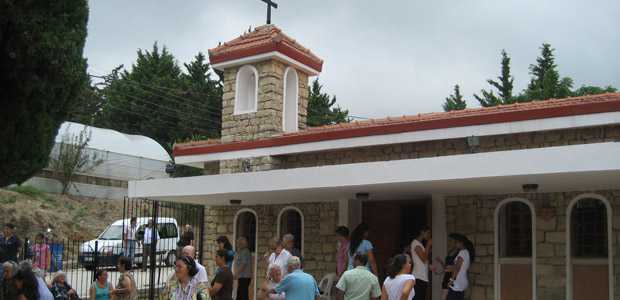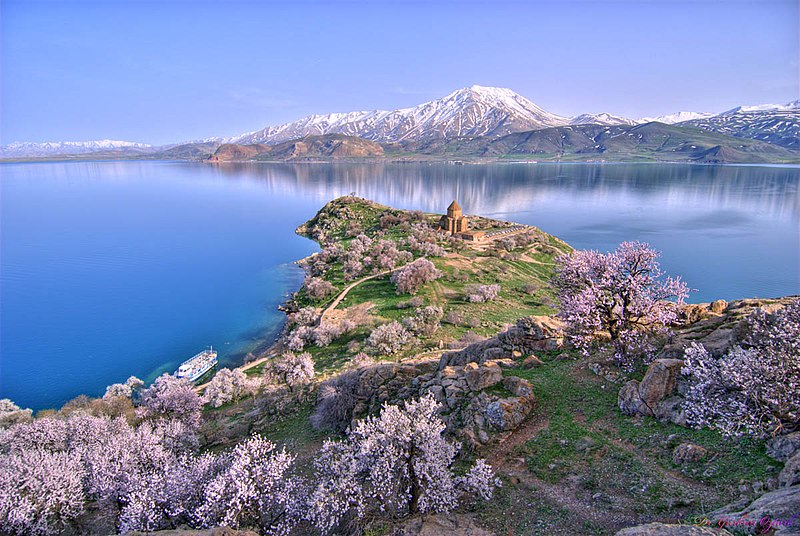How Israel wants to restart the war in the Levant
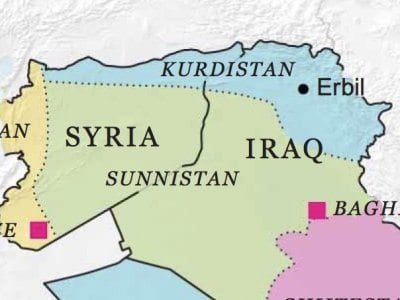
The aim is to pursue the application of the plan elaborated by Robin Wright for the Pentagon – published in September 2013 by the New York Times – by creating an independent Kurdistan straddling Iraq and Syria [1].
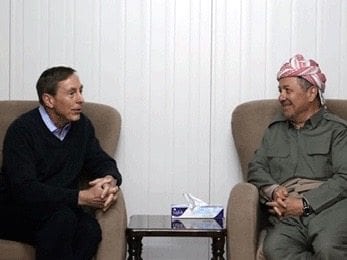
Who are the Kurds ?
The Kurdish people are present in Turkey, Iran, Iraq and Syria, but no longer have a state since the failures of the Republic of Ararat (1927-30) and the Republic of Mahabad (1946-47). The Kurds are today spread out primarily across Turkey (13 to 20 million), Iran (5 to 6 million), Iraq (4 to 5 million) and finally Syria (3 million).
After some of them participated in the genocide of the Christians and the Yezidis, the Turkish Kurds were persecuted in their turn for a century in the name of « pan-Turkism ». During the period 1984-2000, the repression of the insurrection by the PKK caused at leaast 40,000 deaths.
The Iranian Kurds enjoy a certain autonomy, but are abandoned economically by Teheran.
The Iraqi Kurds have been linked to NATO since the beginning of the Cold War, first of all by assisting Saddam Hussein and fighting the Khomeinist revolution, then by working against Saddam when NATO decided to get rid of him. Today they enjoy regional autonomy and maintain embassies abroad.
The Kurds arrived in Syria when they fled the Turkish persecutions, first of all during the reign of Mustafa Kemal Atatürk, and then thirty years ago during the PKK insurrection. Those among them who had not yet been naturalised were awarded Syrian nationality by President Bachar el-Assad at the beginning of the war, and concluded an agreement with Damascus which provided them with weapons for the defence of their region.
The Kurds are a diverse people with powerful internal tensions. They do not speak the same language, have different religions, even though they are principally sunnites, and ally themselves with opposing political movements. Since the Cold War, they are divided between pro-US factions (the Barzani family which today controls part of Iraq) and pro-Soviet factions (Öcallan, who was kidnapped by the Israelis in 1999 on behalf of Turkey and has been emprisoned since then).
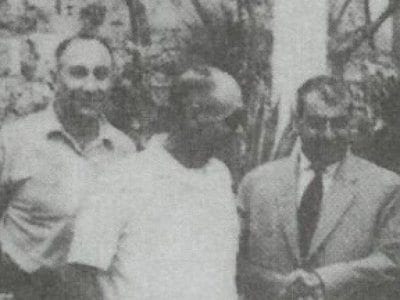
Iraqi Kurdistan : Mafia and the Mossad
Taking into account the role of Israël in Anglo-Saxon imperialism, the Barzani family – which was originally socialist – joined Mossad in the 1960’s which set them against the Iraqi Baath party [2]. Very poorly considered by the Kurds of Turkey, Iran and Syria, the current President Massoud Barzani is probably also a member of Mossad. He has managed to establish a certain prosperity in Iraqi Kurdistan, thanks to Israeli investments, and also to install a clanish régime.
President Barzani is holding onto his power despite the fact that his mandate ended almost two years ago – a non-democratic situation which does not seem to trouble Washington any more than that of Mahmoud Abbas (Palestine) or Abd Rabbuh Mansur Hadi (Yemen). His government wallows in nepotism and corruption. His clan occupies the main posts of importance, beginning with that of Prime Minister, which is reserved for his nephew Nechervan Barzani, and comprises 15 billionaires (in dollars) and thousands of millionnaires, without being able to explain the origins of their fortunes. Lawyers were the first to be repressed, with the condemnation of Me Kamal Qadir to 30 years in prison for having criticised President Barzani. Freedom of the Press has been no more than theoretical since 2010, after the kidnapping and assassination of the Kurdish journalist Sardasht Osman, guilty of having caricatured the President. The regional government is bankrupt, and has not paid many of its officials for several months.

Iraqi Kurdistan and the project for the annexation of Northern Syria
In 2014, the Regional Government of Kurdistan participated in the conspiracy aiming to reconfigure Iraq and Syria, as described in the Wright plan. It participated in several meetings in Amman with the Jordanian secret services, the leaders of the Islamic Emirate, the leaders of armed groups in Syria and the Iraqi Naqchbandis [3]. It was agreed that, under the authority of Washington and Tel-Aviv, the Islamic Emirat and the Regional Government of Kurdistan would launch a coordinated attack to take control of a large part of Iraq. While the international Presse denounced the exactions of the Islamic Emirate in Iraq, Barzami’s Kurds would grab the oil fields of Kirkuk and expand their territory by 40 %.
Following that, while many states, who were secretly supporting the operation, publicly denounced the crimes against humanity and the pillages committed by the Islamic Emirate, the Regional Government of Kurdistan offered the service of the pipe-line they had just stolen to the jihadists so that they could sell the petrol they had just pillaged to the Europeans.
All condemnations of the alliance between the Regional Government of Kurdistan and the Islamic Emirate is severely repressed. So Hayder Shesho, the Yezidi leader who had spoken against it was arrested on the 7th April, although he has a double nationality with Germany.
In the years after 2000, the Israeli Chief of Staff was planning to neutralise the missile capacities of Egypt and Syria by placing Israel’s own missiles in South Sudan and the Iraqi Kurdistan. While the former region has achieved independence, the latter still has not. The Wright plan offers both the occasion to realise this strategic objective and to spread bloody confusion. In order to sabotage the agreement that Washington and Teheran are scheduled to sign on the 30th June, Benjamin Netanyahu has plans to force the Peshmergas (in other words, Barzani’s soldiers) into an assault on Northern Syria. And yet the Syrian Kurds are hostile to the Barzani mafia and have always been in the minority in this region.
For several months now, a campaign of Press lies has been blaming the Pershmergas for the actions of the Turkish Kurds of the PKK against the Islamic Emirate, for example during the battle of Kobane. The Western states, with France in the lead, have been sending arms directly to Erbil without going through Baghdad, in violation of Iraqi sovereignty. These weapons are not being used, but stored for the planned attack on Northern Syria.
In the United States Congress, Edward Royce and Eliot Engel, two representatives who traditionally channel the interests of the Israeli Likud, presented a proposition for law in November 2014 [4] which would authorise the delivery of arms directly to the Regional Government of Iraqi Kurdistan. Since the text was not adopted, these dispositions were included in the law concerning the Defence budget by the President of the Armed Forces Commission, Mac Thornberry, along with others who aim to simultaneously reinforce military aid to groups fighting against the Syrian Arab Republic. If this text were to be adopted by both houses, the proposition would deprive Baghdad of any power outside the the shiite area of Iraq, and would open the way for both the dismatling of the country and a fourth war in Syria. Most Iraqi politicians who speak publicly have warned of the dangers of such a policy. As for the chiite leader Moqtada el-Sadr (ex-commander of the Mahdi Army) he has declared that if the law was to be adopted, he would once again consider the United States as enemies of the Nation, and would make war on the 3,000 military advisors in Iraq as well as US iuterests abroad.
President Obama and Vice-President Biden strongly indicated to President Barzani, on the 5th May at the White House, that they would not allow Israel to pursue their plans, and demanded that the Iraqi Kurds stand down. However,in Iraqi Kurdistan, the Press is pretending on the contrary that President Obama warmly welcomed the delegation, and had promised to support an independent « Kurdistan ».
The new Israeli government, formed on the 7th May by Benjamin Netanyahu, is attempting to unify the jihadists of Northern Syria – the aim is to coordinate their withdrawal to Damascus when the Iraqi Kurds enter Syria to massacre the Kurds of the PYG (the local branch locale of the Turkish PKK, which supports the Syrian Arab Republic) and annex their territory.
President Erdoğan considers that the creation of an independent « Kurdistan » straddling Iraq and Syria would revive the Kurdish conflict in his country, and denounced the project as a step towards the destruction of Turkey. In the event of a Kurdo-Iraqi offensive in Syria, he could instantly take sides with Damascus.
There is no doubt that the Israeli project will be debated (together with the creation of an Arab NATO under Israeli control) during the next session of the Gulf Cooperation Council that President Obama – who is not a member – has called at Camp David.
[Translation: Pete Kimberley]
[1] “Imagining a Remapped Middle East”, Robin Wright, The New York Times Sunday Review, September 28, 2013.
[2] “”Kurdistan” Israeli Style”, by Thierry Meyssan, Translation Roger Lagassé, Al-Watan (Syria), Voltaire Network, 14 July 2014.
[3] “PKK revelations on ISIL attack and creation of “Kurdistan””, Voltaire Network, 8 July 2014.
[4] H. R. 5747, “Bill to authorize the direct provision of defense articles, defense services, and related training to the Kurdistan Regional Government, and for other purposes”, House of Representatives, November 20, 2014.
French intellectual, founder and chairman of Voltaire Network and the Axis for Peace Conference. His columns specializing in international relations feature in daily newspapers and weekly magazines in Arabic, Spanish and Russian. His last two books published in English : 9/11 the Big Lie and Pentagate.
VOLTAIRE NETWORK | DAMASCUS (SYRIA) | 15 MAY 2015





